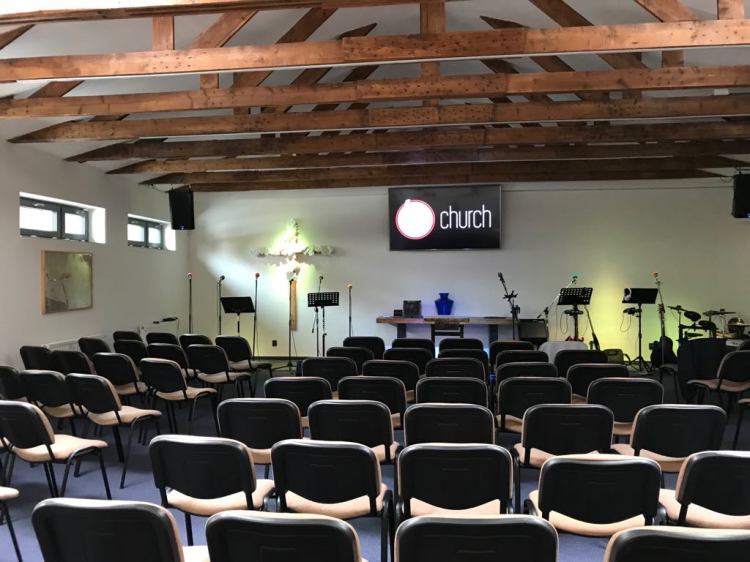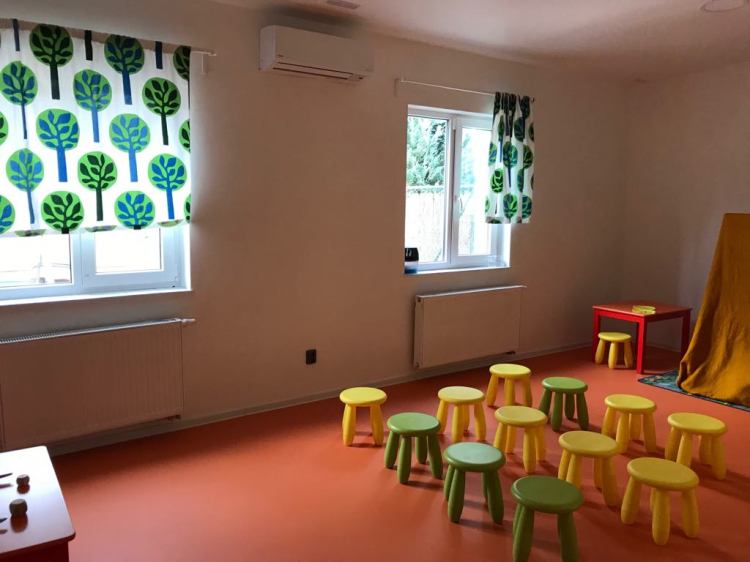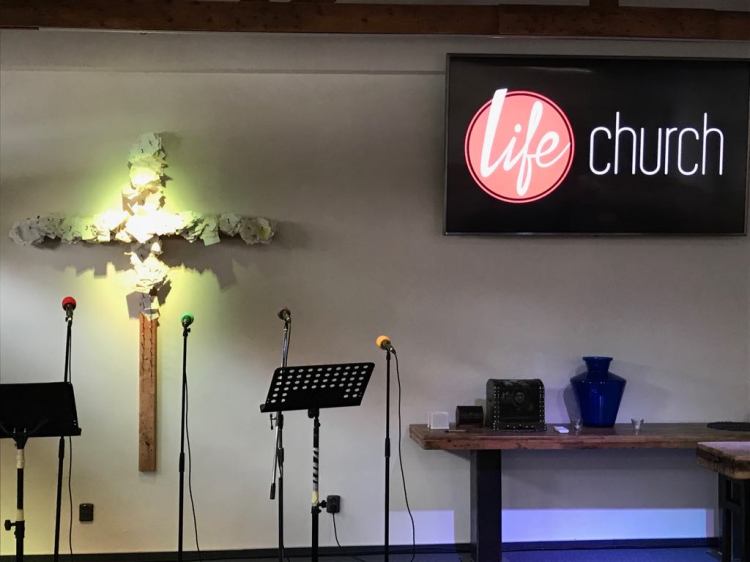*The following is an article I was recently asked to write about how to minister to those dealing with mental health issues in the church:
Ministering to the Hurting: Caring for Those Affected by Anxiety and Depression in our Congregations
Kelly Myers, Licensed Professional Counselor
You have noticed a long-time member of your congregation behaving a bit differently lately. She seems more tired and tense, talks less than normal, and you have noticed her mentioning the same fears and worries over and over. She does not attend as many meetings at church as she used to. You are confused by her new manner and wish you knew the best way to help her.
A member of your leadership team at church has in the past year grown distant from others in the church. He often sits alone and rarely looks up at you while you are preaching every Sunday. He has dark circles under his eyes, has lost weight, and is not taking the best care in his appearance. As a leader in the church, you wish he would set a better example for other members but you do not know how to communicate this to your leader in an effective manner.
In the United States 18% of the adult population suffers from an anxiety disorder and roughly 7% have had a major depressive episode in the past year.[1] With over one million members of the Church of God in the United States, there is reason to believe there are many who suffer from anxiety and depression in our congregations every week.
As ministers in the church, how do we best respond to those who are dealing with these issues? One of the first steps we can take is to assume that there are members of our congregation dealing with anxiety and depression. As those called by God to serve our congregations and care for them well, part of our responsibility is to understand to the best of our ability the issues that are affecting them and their spiritual lives.
In seeking to know more about anxiety and depression, it is extremely important to recognize the difference between routine feelings of stress and sadness and the mental illnesses of an anxiety disorder and major depression. A person experiencing stress is not necessarily dealing with an anxiety disorder, just as a person who is going through a time of sadness is not always dealing with major depression. Usually stress or sadness will eventually fade over time or as circumstances change. The difference with a mental illness such as an anxiety disorder or major depression is that a person experiencing them will not typically be able to change these emotions on her or his own, nor have them simply disappear over time.
With this knowledge, the next step should be asking ourselves these important questions: Do I know the signs and symptoms to look for in these mental illnesses? Just as importantly, do I know how to respond best to those exhibiting these symptoms?
Symptoms Experienced by a Person with an Anxiety Disorder[2]:
- Difficulty concentrating
- General unease and/or easily tired
- Problems sleeping
- Not having the ability to stay calm and still (restlessness)
- Irritability
- Muscle tension
Observable Signs that Someone Has an Anxiety Disorder[3]:
- Admission of at least half of the listed symptoms of anxiety disorder
- High levels of stress and worry and the inability to control these
- Symptoms have lasted for at least six months
- Everyday functioning has been affected in at least two environments (home, church, work, etc.)
How to Respond:
- Normalize the experience (to combat feelings of isolation, share that many people are affected by anxiety disorders)
- Ask about a support system (does the individual have a few people to talk to who understand what they are going through)
- Refer to a counselor (if you feel the person needs professional help, you can find a Christian counselor in your area through the American Association of Christian Counselors: http://www.aacc.net/resources/find-a-counselor/)
- Offer to pray regularly for issues directly related to anxiety (for peace and calmness of mind and an awareness that God is always present in the person’s life)
- Check in often (show your care by taking time to really listen to how someone affected by anxiety is doing)
How Not to Respond:
- Do not try to fix the anxiety on your own!
- Do not say that an anxiety disorder can always be cured simply by praying and reading scripture (although this can be a huge help and should definitely be encouraged as a first step and continual practice)
- Do not try to rationalize the worry (an anxiety disorder leads people to often have fears that are not grounded in logical thinking – trying to rationalize deep fears often leads to feelings of worthlessness or failure)
- Do not share information someone has confided in you privately (maintain trust and a good relationship by observing confidentiality of information unless the person dealing with anxiety gives you permission to share)
Symptoms Experienced by a Person with Major Depression[4]:
- Depressed mood most of the day (feelings of hopelessness, sadness, and emptiness)
- Weight loss (without trying) or weight gain
- Diminished interest in activities that were previously pleasurable
- Changes in sleep patterns (sleeping too little or too much)
- Low energy or fatigue daily
- Feelings of worthlessness or guilt over things with which the person is not at fault
- Difficulty concentrating
- Feeling agitated or irritated
- Thoughts of death
Observable Signs that Someone is Dealing with Major Depression[5]:
- Admission of at least half of the listed symptoms of Major Depression
- Symptoms have lasted daily for at least two weeks
- Everyday functioning has been affected (there is a big difference from how the person was functioning before and after dealing with major depression)
How to Respond:
- Normalize the experience (share that many people suffer from major depression and the person is not alone in their experience)
- Ask about a support system (does the individual have at least one person to talk to about their depression who understands what they are going through)
- Refer to a counselor (if you feel the person needs professional help, especially if issues of suicide are mentioned, you can find a Christian counselor in your area through the American Association of Christian Counselors: http://www.aacc.net/resources/find-a-counselor/)
- Offer to pray regularly for issues directly related to depression (for lifting of the dark feelings and knowledge that God is always present when experiencing these feelings)
- Check in often (show your care by taking time to really listen to how someone affected by depression is doing)
How Not to Respond:
- Do not expect a person dealing with major depression to simply feel better on his or her own.
- Do not expect a quick fix (depending on the symptoms present, counseling and medication may be needed to achieve normal functioning)
- Do not encourage a person suffering with major depression to simply attend more activities at church to feel better (major depression can be extremely tiring and lots of social activity can be very draining)
- Do not ignore talk of death or suicide (this is a very serious issue that requires professional help – always refer to a trained counselor or to your local emergency room if there has been a current suicide attempt)
Now that you have the signs and symptoms of anxiety disorder and major depression, you can probably see that the woman in the first scenario is dealing with an anxiety disorder and the man in leadership in the church is experiencing major depression. Responding appropriately to those in your congregation who have similar situations can be very effective ministry. As ministers, our first response should always be empathy and concern applied with a listening ear, prayer, and comforting scriptural passages (for example: 2 Corinthians 1:3-5). Our second response, and ministerial responsibility, is to find and offer the best care possible. A Christian counselor can be a huge help to someone experiencing an anxiety disorder or major depression.
Likewise, medication to help control the anxiety and depression can really help to restore stability to a person’s life. Just as a person dealing with a physical illness (such as diabetes) will need medicine to regulate her or his body, so too a person experiencing a mental illness can sometimes benefit from medication to regulate emotions. Our primary concern for those in our congregation should be that they are able to function well enough in life to experience a rich, full relationship with God and with each other. Being healthy emotionally contributes so much to this. Let us take good care of those that God has put under our care and be caring, responsible ministers for Him.
[1] National Institute of Mental Health – www. nimh.nih.gov
[2] Diagnostic and Statistical Manual of Mental Disorders V
[3] Diagnostic and Statistical Manual of Mental Disorders V
[4] Diagnostic and Statistical Manual of Mental Disorders V
[5] Diagnostic and Statistical Manual of Mental Disorders V










